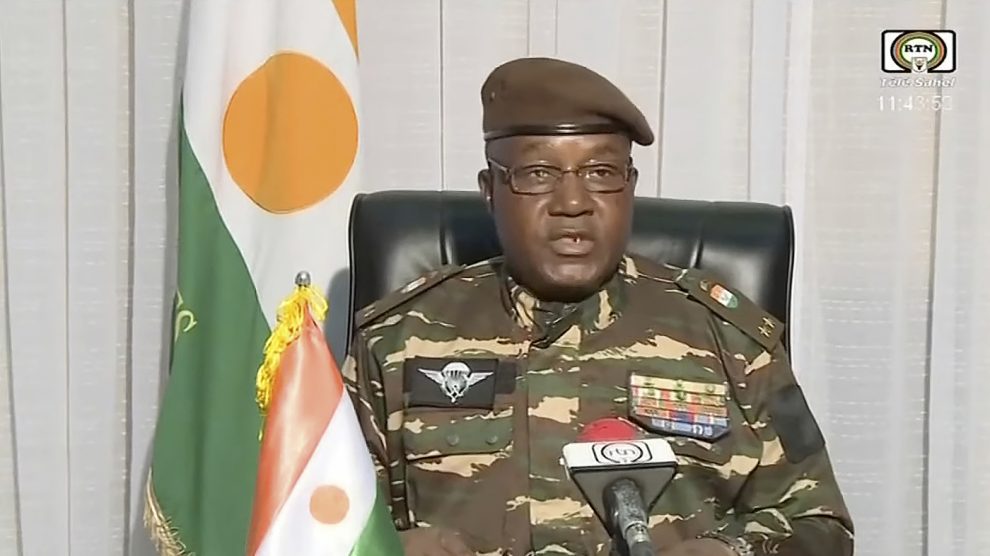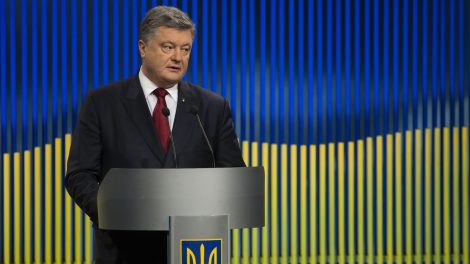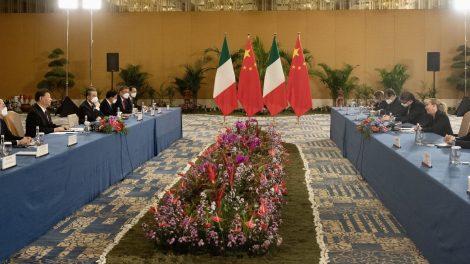The normalisation of a Tchiani-led Niger? In a televised statement on Saturday, the general-in-chief and head of July’s coup, General Abdourahamane Tchiani, recently proposed to hand over power to civilian rule in three years’ time. In the meantime, Niamey would be administered by a junta controlled by him, with the aim of restoring order and security – against a power system that he said was corrupt and had little effect in combating the expansion of terrorism-linked jihadist groups.
- The proposal was rejected by the ECOWAS regional bloc, with whom General Tchiani’s junta had spoken prior to his speech in the presence of the deposed president, Mohamed Bazoum. The bloc announced it would intervene militarily in Niger, but did not specify a date – and given how unpopular that idea is among the populace, it’s unclear whether that might happen at all.
- In the meanwhile, General Tchiani seems convinced he can proceed according to his agenda, appointing a government, announcing a transitional period and preparing a process of “national dialogue” through which a new constitution will be drafted: he’s probably convinced that, in the medium term, he will be able to convince ECOWAS as well as the international community of the goodness of his intentions.
A matter of equilibrium… The coup leader has two elements on his side. First, the international community agrees that military intervention is not appropriate. There is sympathy for ECOWAS’ strict line but the dominant position seems to be the one taken by countries like Italy. Those maintain that the use of force to seize power is unacceptable but every effort must be made to avert a military operation that could put millions of civilians at risk, in Niger as elsewhere, and produce regional disruption, leaving space for rival forces in the international order such as Russia (with Wagner) or terrorist groups.
… and some harsh realities. The second aspect is more internal, but for external use: General Tchiani did not immediately gain consensus from various sections of Niger’s population, but over the past month he has not been the target of any outbursts of protest or opposition, neither from civil society (including the elites) nor from the armed forces.
- General Tchiani is the co-head of the Presidential Guard, a unit consisting of around two thousand men, but the rest of the military components (over twenty thousand) have so far not moved in opposition to the coup leader.
- On the contrary, some elements have more or less openly supported the coup – such as Brigadier General Moussa Salaou Barmou, who was raised as a man and as a soldier by the United States. These figures are a very consistent and as-of-yet unbroken form of contact with the coup junta (suffice it to say that Mr Barmou tried to explain the reasons for the coup in an interview with the Wall Street Journal).
The bottom line: there is a sort of “military diplomacy” underway that differentiates what happened in Niger from the events in Mali and Burkina Faso – where the coup juntas quickly slipped to the anti-Western line, closing in and formally requesting Wagner’s assistance, after having been openly penetrated (long before) by pro-Russian narratives and activities.
- For all these reasons, the path of dialogue with General Tchiani – who, by the way, does not have such an embarrassing track record – is being considered more carefully in various Western diplomatic corridors.
Bring in the diplomats. Alongside the contact initiative via the military – there are still hundreds of American, French and even Italian soldiers in Niger – more classic diplomatic activities are being pursued. In recent days, for instance, the new US Ambassador Kathleen Fitz-Gibbon, an experienced diplomat with deep knowledge of West and Central Africa, arrived in Niamey.
- “Her arrival does not reflect any change in our political stance, but responds to the need for senior leadership of our mission at a difficult time. Her diplomatic objective will be to support a diplomatic solution that preserves the constitutional order,” commented the State Department.
- Italy is already active along these lines, with Ambassador Emilia Gatto, who – in coordination with the Italian Ministry of Foreign Affairs – has kept the diplomatic office open both to take care of current business (such as the return of some Italian citizens) as well as to seek points of dialogue.
- “When you have the privilege of representing your country, you can’t not be there when you need to be,” she posted to X when she returned to Niamey on August 2.




